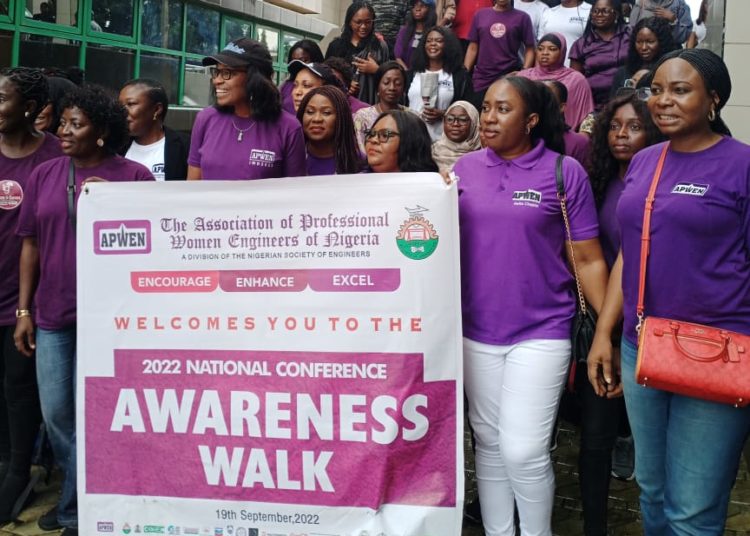The Association of Professional Women Engineers of Nigeria (APWEN), has said that the present power crisis afflicting Nigeria will persist unless the federal government explored alternative sources of energy for the country.
The APWEN president Engr. Elizabeth Jumoke stated this yesterday at the 2022 National Conference of the Association of Professional women engineers of Nigeria (APWEN), which happens to be the largest gathering of Nigerian female engineers including those in the diaspora with the theme: “Just Energy Transition: An Enabler for Sustainable Development in Nigeria” held at NSE headquarters Abuja.
Jumoke said that it would be good if government diversified the energy sources in domestic, commercial, and industrial sectors and adopts new available technologies to reduce energy wastages and to save cost.
“In Nigeria the power sector has been in comatose for many years coupled with frequent collapse of our national grid. Secondly, our source of energy is not renewable resulting in high carbon, leading to environmental pollution.
“However, transition of the energy sector will require significant investments. As we all know traditional fossil fuel exporting countries are seeking how to leverage the change in demand patterns that are being brought about by the energy transition and as a momentum to decarbonise their economies and Nigeria should not be left behind.”
“This, I guess that is the reason why the Nigerian government launched an energy transition plan aimed at boosting investments for energy project development to address increasing energy poverty and ensure energy sustainability.
“This plan includes Nigeria ensuring access to affordable, reliable, sustainable and modern energy for all of its 200 million people by the year 2030 and achieving net-zero by the year 2060 through massive investments in oil, gas, solar and other modern energy technologies such as hydrogen and electric vehicles.
“There is no doubt that the present power crisis afflicting Nigeria will persist unless the government diversifies the energy sources in domestic, commercial, and industrial sectors and adopts new available technologies to reduce energy wastages and to save cost,” she said.
According to her, A JUST Energy Transition is a transition towards a sustainable, low carbon and equitable energy system that is aimed at improving the lives of people and sustains the environment. Access to clean modern energy services is an enormous challenge facing the African continent particularly, Nigeria because energy is fundamental for socioeconomic development and poverty eradication. A JUST Energy Transition is a transition towards a sustainable, low carbon and equitable energy system that is aimed at improving the lives of people and sustains the environment.
She however, explained that the association is focusing on this issue because, one, as engineers we are the investors and so we are stakeholders in the implementation of the energy transition plan.











